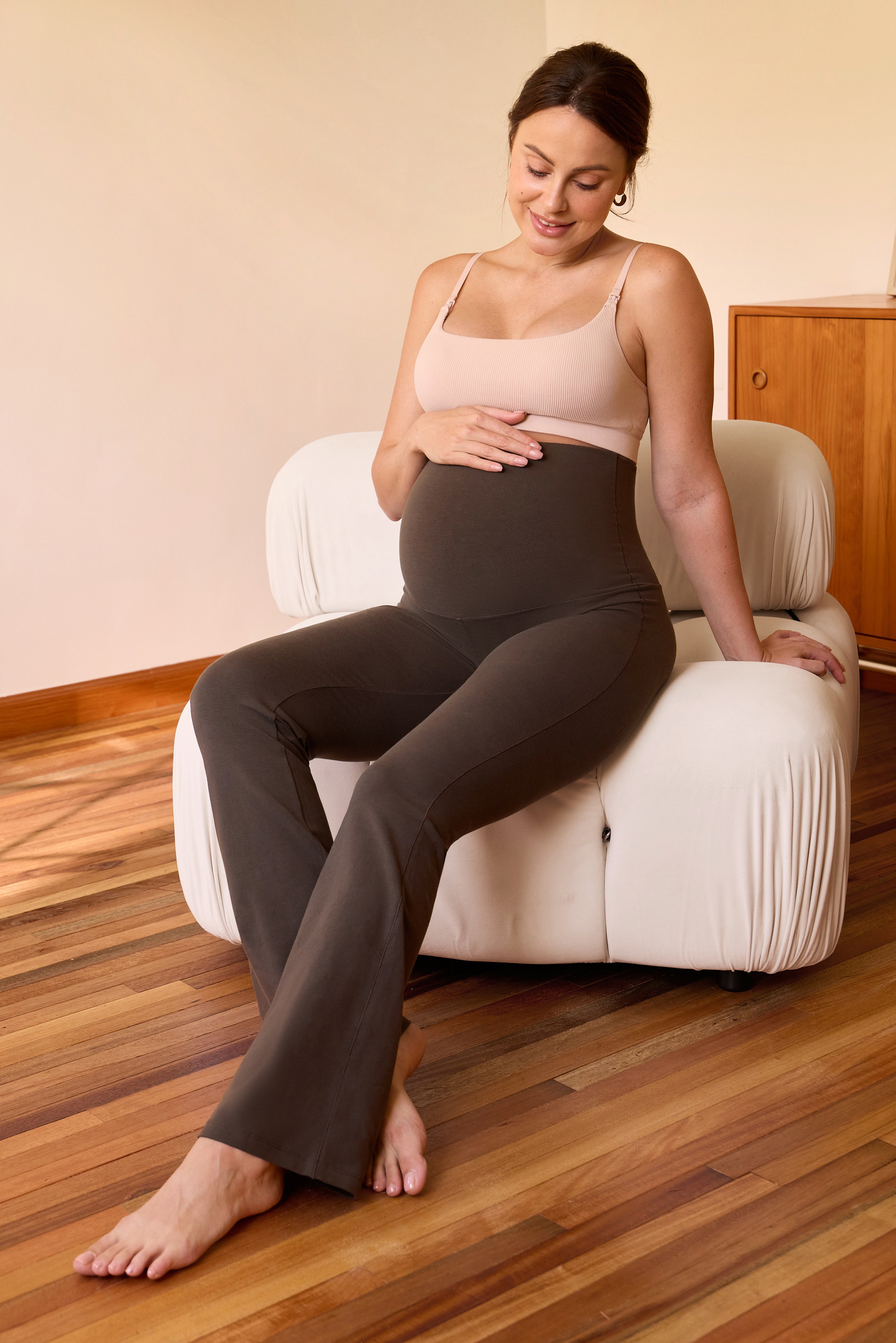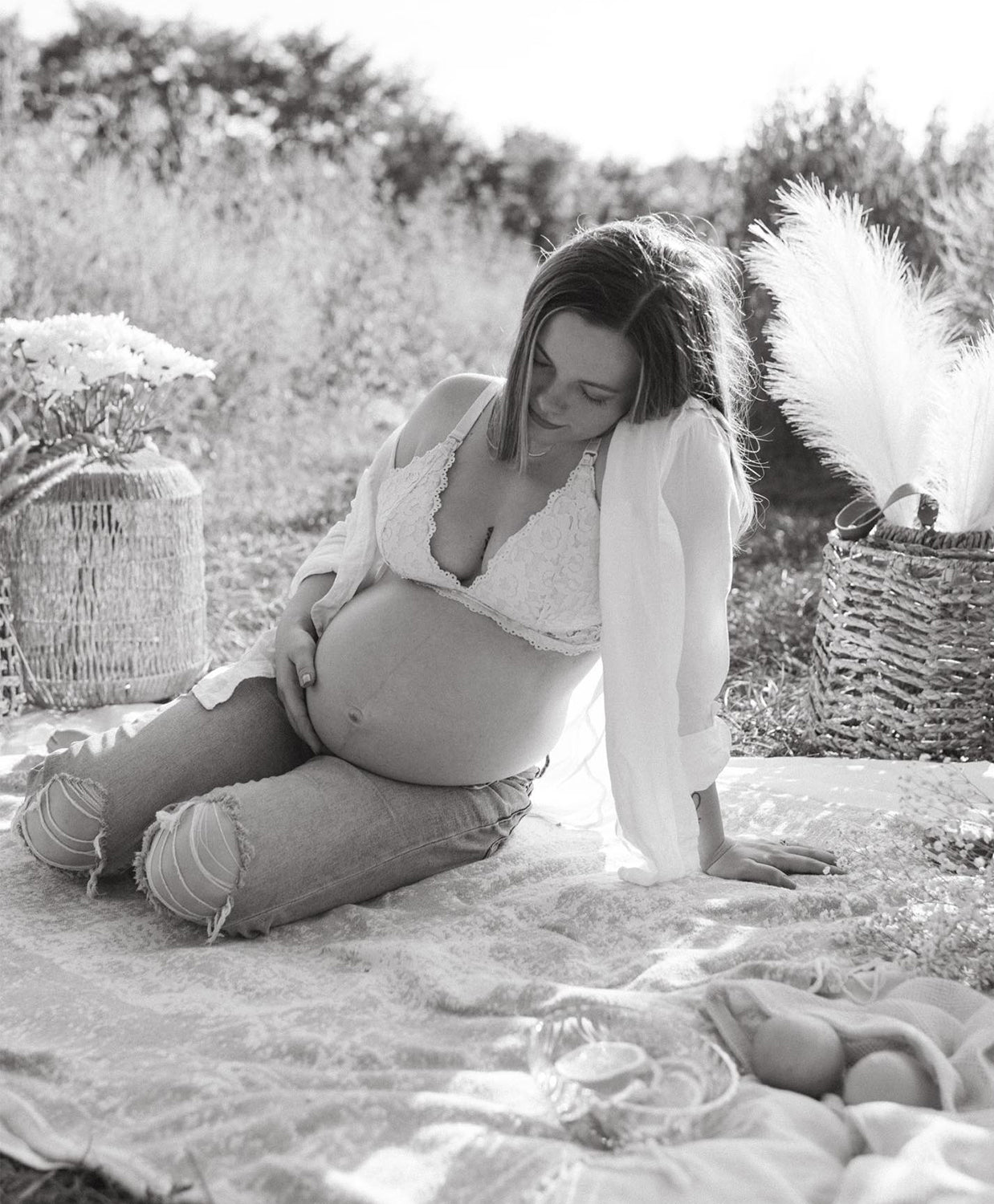Pregnancy can be a magical experience, but it also brings many changes to a woman’s body, and one of the most noticeable effects is hair loss. After giving birth, many women find that their hair thins or falls out due to the drastic hormone changes. While it can be disheartening, the good news is that it’s often temporary, and with the right care and treatments, your hair can start to grow back. In this article, we’ll dive into the causes of hair loss after pregnancy and the steps you can take to support healthy hair regrowth.
Hair Loss After Pregnancy
Hair loss after pregnancy, also known as postpartum hair loss, is a common condition that affects many women. During pregnancy, hormonal changes cause your hair to remain in the growth phase for longer than usual, leading to fuller, thicker hair. However, after childbirth, your hormone levels begin to return to normal, which can trigger the shedding of the hair that was retained during pregnancy. This sudden hair shedding can start anywhere from two to four months after childbirth and typically peaks around six months postpartum.
1. Maintain a Healthy Diet for Hair Growth
One of the first things you can do to help regrow your hair after pregnancy is to eat a balanced diet. Your hair, like the rest of your body, needs the right nutrients to grow strong and healthy. Focus on incorporating vitamins and minerals that promote hair health, including:
Iron: Found in lean meats, spinach, and beans, iron helps to nourish hair follicles and encourage growth.
Vitamin D: Essential for hair follicle cycling, vitamin D can be found in fatty fish, fortified dairy, and sunlight exposure.
Biotin: This B-vitamin is crucial for hair growth, and you can find it in eggs, almonds, and avocados.
Omega-3 fatty acids: Found in fatty fish, flaxseeds, and walnuts, omega-3s help nourish the scalp and promote healthy hair follicles.
Don’t forget to stay hydrated, as dehydration can contribute to hair loss. Drink plenty of water throughout the day to support your overall health.
2. Gentle Hair Care Practices
After pregnancy, your hair may be more fragile and prone to breakage, so it’s essential to adopt gentle hair care habits. Use a mild, sulfate-free shampoo to avoid stripping your hair of natural oils. When conditioning, opt for a deep-conditioning treatment once a week to hydrate your hair and keep it healthy.
Avoid over-styling, which can lead to unnecessary stress on your hair. Let your hair air-dry when possible, and avoid tight hairstyles that can cause traction alopecia (hair loss due to tension). If you need to use heat tools like flat irons or curling irons, be sure to use a heat protectant to minimize damage.
3. Scalp Massage to Stimulate Hair Growth
A scalp massage is a simple yet effective way to encourage hair growth. Gently massaging your scalp for a few minutes each day can increase blood circulation to the hair follicles, promoting healthy hair regrowth. You can use natural oils like coconut oil or castor oil, which are known to nourish and strengthen the hair. Both oils are rich in nutrients that can help hydrate the scalp and prevent dryness, which could otherwise contribute to hair loss.
4. Consider Hair Growth Supplements
If your hair loss persists beyond the normal postpartum period, you may want to consider hair growth supplements. Supplements containing biotin, collagen, and vitamin E can support hair regrowth. Consult with your doctor or a healthcare professional before starting any new supplements, as they can interact with other medications you may be taking.
5. Be Patient and Give Your Hair Time
Patience is key when it comes to postpartum hair loss. While it can be frustrating to deal with thinning hair, it’s important to remember that the shedding phase is usually temporary. For most women, the hair loss will gradually slow down by the time your baby reaches a year old, and full regrowth often happens within 12 to 18 months.
6. Manage Stress
Stress can be a significant contributor to hair loss, and adjusting to motherhood can be overwhelming. Stress has been shown to disrupt the hair growth cycle, so finding ways to reduce stress is crucial for overall health, including hair regrowth. Consider practices like yoga, meditation, or even a short daily walk to relieve stress. Getting enough sleep and seeking support from friends or family can also help you manage stress levels.
7. Avoid Chemical Treatments
Chemical treatments like hair dyes, perms, and relaxers can weaken your hair, making it more prone to breakage. If you’re dealing with postpartum hair loss, it’s best to avoid these treatments while your hair is in a delicate state. Instead, let your hair recover naturally before considering any chemical treatments.
8. Talk to Your Doctor
If your hair loss is severe or doesn’t improve over time, it might be a good idea to consult with your doctor or a dermatologist. They can rule out any underlying medical conditions, such as thyroid problems or iron deficiency anemia, that could be contributing to your hair loss. In some cases, medications like minoxidil may be recommended to stimulate hair regrowth.
9. Hormonal Therapy Options
For some women, postpartum hair loss may be more severe due to hormonal imbalances. If your hair loss continues after your first year postpartum, a visit to your healthcare provider may be necessary. Hormonal therapy could be considered if there’s an imbalance in estrogen or thyroid levels, and your doctor may prescribe medication to help restore hormonal balance.
10. Try Natural Treatments
Several natural remedies are believed to support hair regrowth. These include:
Aloe vera: Known for its soothing properties, aloe vera can also promote scalp health and help reduce hair loss.
Rosemary oil: Some studies suggest that rosemary oil can stimulate hair follicles and encourage growth.
Before using these treatments, make sure to do a patch test to check for allergies or irritation.
Conclusion
While postpartum hair loss can be frustrating, there are many ways to support healthy regrowth. By maintaining a healthy diet, practicing gentle hair care, managing stress, and being patient, you’ll be well on your way to regrowing your hair and restoring your confidence. Remember, every woman’s experience is different, and it may take time for your hair to return to its pre-pregnancy state. If you’re concerned about persistent hair loss, don’t hesitate to speak with a healthcare professional for personalized advice.
FAQs
How long does postpartum hair loss last
Postpartum hair loss typically lasts for 3 to 6 months. However, with proper care and nutrition, most women find that their hair starts to grow back within this period.
Can I prevent postpartum hair loss completely?
While it’s difficult to prevent postpartum hair loss entirely due to hormonal changes, you can reduce its severity by following a healthy diet, managing stress, and using natural remedies.
Will my hair go back to normal after postpartum hair loss?
Yes, in most cases, hair regrowth happens naturally once hormone levels stabilize. It may take time, but with the right care, your hair will return to its normal state.









